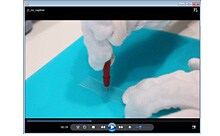Py-Screener Ver.2 - Особенности
Screening System for Phthalate Esters and Brominated Flame Retardants
Easy to Operate Even for Novices
This screening system consists of a sampling toolkit, special standards, and special software and can be easily operated even by novices.
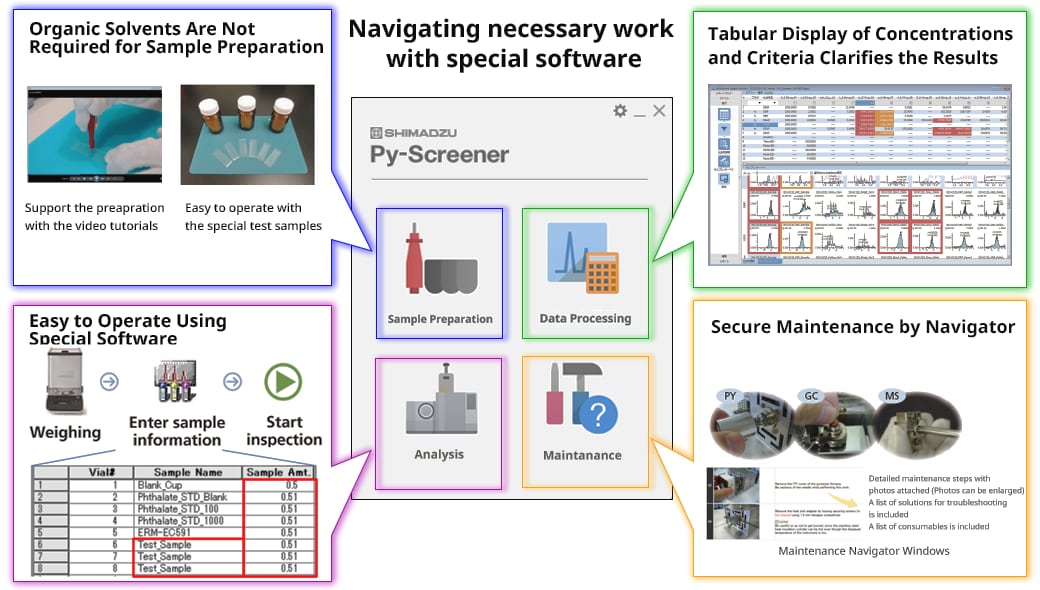
Sample Preparation Video
The sample preparation videos can be viewed on smart devices by accessing them here. The user name and password attached to the product are necessary to access this link.
Newly Developed High-Speed (22 Minute) Simultaneous Inspection Method for 7 Phthalate Esters and Brominated Flame Retardants
A method has been developed that significantly shortens simultaneous inspection times for phthalate esters and brominated flame retardants. This enables productive and reliable inspections for a wide range of regulated compounds.
Note 1: This edition also includes the conventional (35 minutes) simultaneous inspection method for phthalate esters and brominated flame retardants, and an inspection method compatible with high-speed screening exclusively for phthalate esters.
Note 2: This simultaneous inspection method is only compatible with Shimadzu high-durability columns (SH-1MS with guard column).
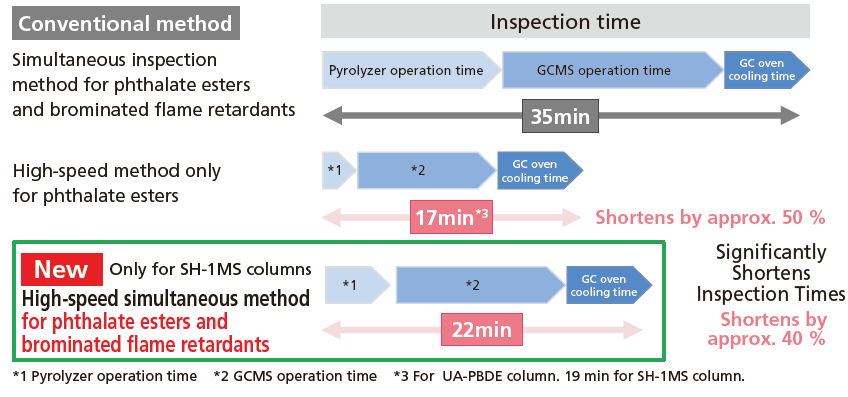
Simultaneous Inspections for Phthalate Esters and Brominated Flame Retardants (Total of 20 PBBs and PBDEs)
The system can perform batch inspections for phthalate esters and a total of twenty PBBs and PBDEs with between one and ten bromine atoms. With the new "correction factor database" function, the software automatically generates calibration curves for the compounds not included in the standard sample based on the calibration curve information of the standard sample, allowing the concentration of all of the above compounds to be calculated. A simultaneous screening method for phthalate esters, PBBs, and PBDEs using Py-GC/MS has been studied for standardization under the international analytical standard IEC 62321 3-3.
Note: The same standard sample used in Ver. 1 is used in Ver. 2. However, calibration curve information obtained with conventional products cannot be used with Ver. 2.
- Equipped with the correction factor database function, which registers the area ratio information of the compounds (substitute compounds) included in the standard samples and the compounds not included in the standard samples.
A wide range of compounds can be quantified just with standards samples for some compounds. 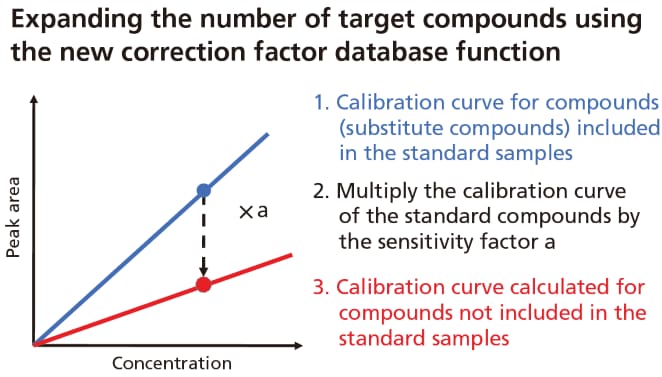
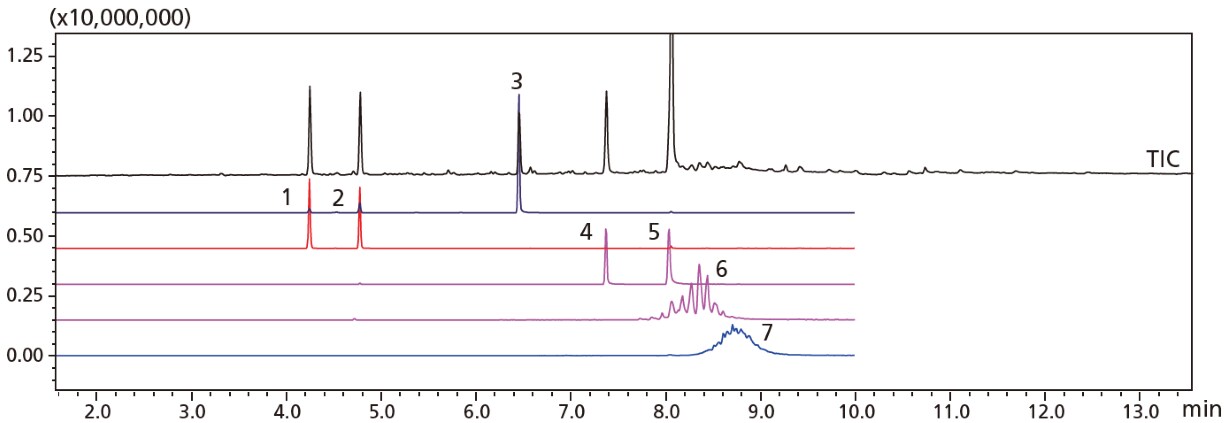
Inspection results for seven phthalate esters (DIBP, DBP, BBP, DEHP, DNOP, DINP, and DIDP)
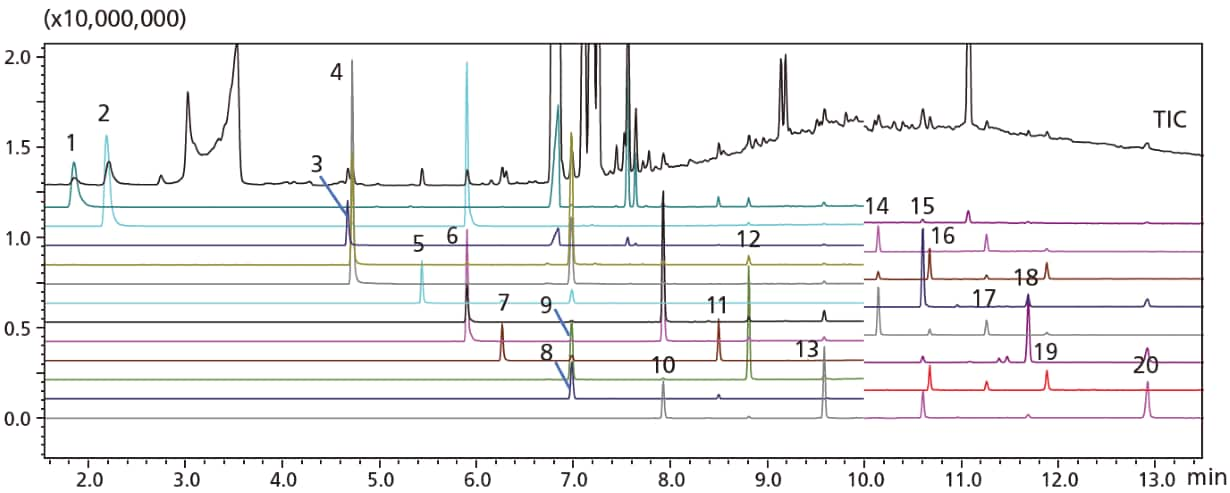
Inspection results for PBBs (total of ten with one to ten bromine atoms) and PBDEs (total of ten with one to ten bromine atoms)
Phthalate Ester Screenings in Accordance with the European REACH Regulation
- Since 2020, under the European REACH regulation, the same four phthalate esters (DIBP, DBP, BBP, and DEHP) regulated under the RoHS directive have become regulated in a wide range of molded items including toys and childcare articles.
Under the REACH regulation, regulatory concentration values are established with respect to individual concentration values and total calculated concentration values, which means that this regulation must be managed differently than the RoHS directive. This system is capable of automatic screening determinations with respect to the total calculated concentration of these four phthalate esters. It can also be used for phthalate ester inspections aimed at the REACH regulation. 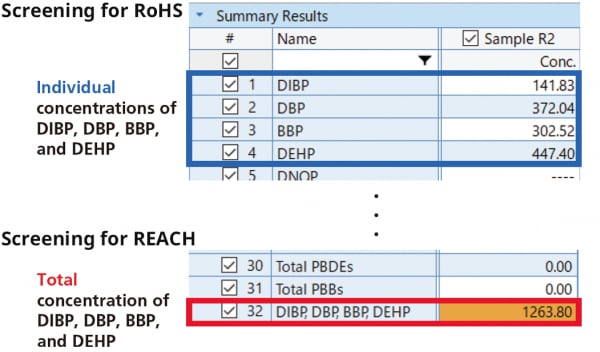
High Durability Columns Dedicated for Py-Screener Ver. 2
The system is now compatible with inspections with Shimadzu's SH-1MS high-durability column, which includes a guard column as part of its design. This reduces the maintenance burden and running costs by limiting column deterioration, even for customers who screen frequently.
Integrated Analytical/Guard Column
- The guard column is integrated, so there are no concerns about leaks due to the guard column connection or absorption and decomposition of compounds targeted for screening at the connection site.
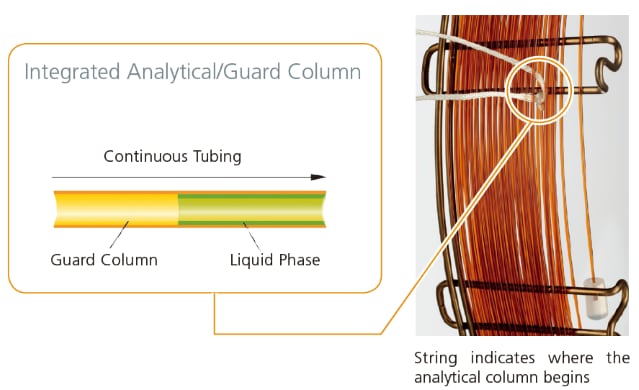
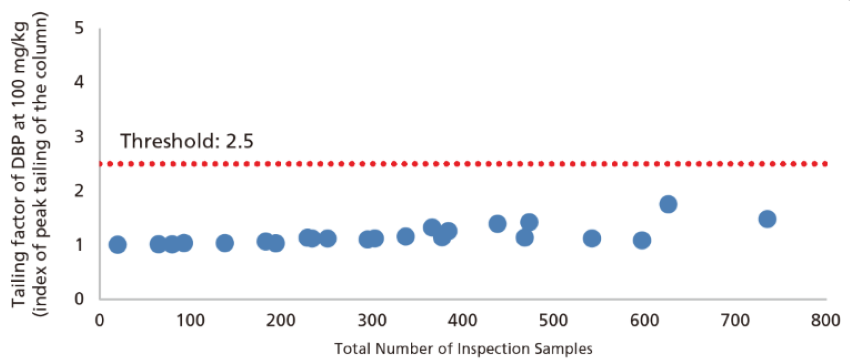
Results of a durability test using the high-durability column (SH-1MS with integrated guard column) dedicated for Py-Screener Ver. 2



